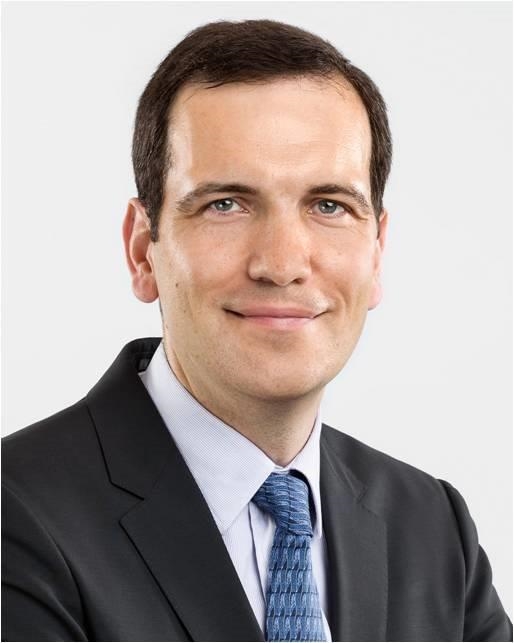Re-engineering infra finance for energy transition
Author: Hervé Le Corre, global head of infrastructure finance at Societe Generale
When Allego announced the closing of a new €400 million ($423m) credit facility on 19 December 2022, the largest ever debt raise in this nascent asset class, it was pushing the boundaries of infrastructure finance.
Unlike the classic project financings of proven infrastructure assets with predictable cashflows, Europe’s leading public electric vehicle (EV) charging network needed the capital to build out its grid – an essential utility for an EV market that’s still in the making.
Allego’s story is a good example of the new boundaries of infrastructure finance. Since being acquired by Meridiam in 2018, Allego has expanded its charging station network to 28,000, partly financed by 2 debt issues. At Societe Generale, we have played a leading role in arranging and underwriting the transactions, comforted by our in-house expert knowledge of the EV value chain.

As the world seeks not only to decarbonise its economies but also to reduce waste and tackle social problems, so trillions of dollars will be required for new types of infrastructure.
To assess the risks, lending banks must have deep knowledge of entire new value chains, such as that for EVs, so that they can judge the prospects and probable cashflows of nascent infrastructure businesses.
Shifting infrastructure finance needs
When I started working in infrastructure finance, we typically financed stand-alone projects such as roads, bridges or train lines, as well as public-private partnerships for social infrastructure including hospitals.
Since 2016, we have shifted to finance digital assets like broadband.
But the fastest-growing demand for finance today is from pioneers of the energy and broader ESG transitions, challenging banks to adjust their approach.
Just as the type of infrastructure is changing, so too is the type of client. While infrastructure’s equity sponsors were previously large corporates focused on specific sectors, today they are increasingly infrastructure funds or pension funds.
They invest across a range of new sectors – from EV charging networks to smart meters, to waste recycling – asking banks to provide structured finance for unproven businesses, sometimes with new technology.
The example of EV charging networks shows how banks can adjust. With existing sectors such as petrol stations, for instance, lenders or investors can take comfort in knowing that drivers can only buy their fuel there, making revenues more predictable.
But what percentage of EV charging will happen on roadside networks and how much at home or at work? What will be the share of slow, fast or ultra-fast charging?
No one really knows, but by observing existing markets such as Norway where about three-quarters of the car fleet is already electric, it’s possible for us to make an educated guess that can lead to a calculated risk.
What’s more, the fact that an EV charging station business is diversified helps to spread the risk. In Allego’s case, it is spread across its on-street city charging stations, charging stations in supermarket car parks and installation and maintenance contracts for car leasing companies. Beyond that, Allego’s network is spread across several European countries.
Only by understanding the risks of a new sector such as this, will banks and capital markets be able to contribute to the huge scale of finance required. Within the EU alone, establishing EV networks will cost €94.3 billion by 2030, according to ChargeUp Europe.
Societe Generale has sector experts, including engineers, within our credit risk department. They have enabled us to become the first bank to finance EV charging stations at scale, just as we did for fibre optic cable a little more than 5 years ago. Such expertise is essential in order to become comfortable with new risks.
Matching clients’ agility
The growing involvement of institutional investors in energy transition infrastructure also means banks must be more agile, following our clients into new areas.
In June 2021, for instance, a consortium of 5 pension funds bought 50% of Stockholm Energi, the city’s district heating and cooling system, aiming to provide pioneering environmentally sustainable district heating, including carbon capture. Societe Generale was 1 the lead arrangers and underwriters of this acquisition finance.
The bank also supported specialist infrastructure fund Meridiam when it acquired Sofia Airport from the Bulgarian government in 2018, acting as lead arranger and bookrunner. By 2035, the airport aims to be carbon neutral, eliminating direct greenhouse gas (GHG) emissions and making alternative fuels available for airlines.
As the drive to tackle environmental and social challenges gathers speed, many new types of infrastructure business will emerge.
For example, waste management businesses are likely to require finance for technologically advanced ways to recycle plastics at scale.
It’s time, then, for infrastructure finance banks also to evolve so that they can support their clients’ necessary innovations.
To do so, they must bring together the collective intelligence of their in-house specialists across the key value chains and have the flexibility to support the transition’s emerging business models.
Request a Demo
Interested in IJGlobal? Request a demo to discuss a trial with a member of our team. Talk to the team to explore the value of our asset and transaction databases, our market-leading news, league tables and much more.

